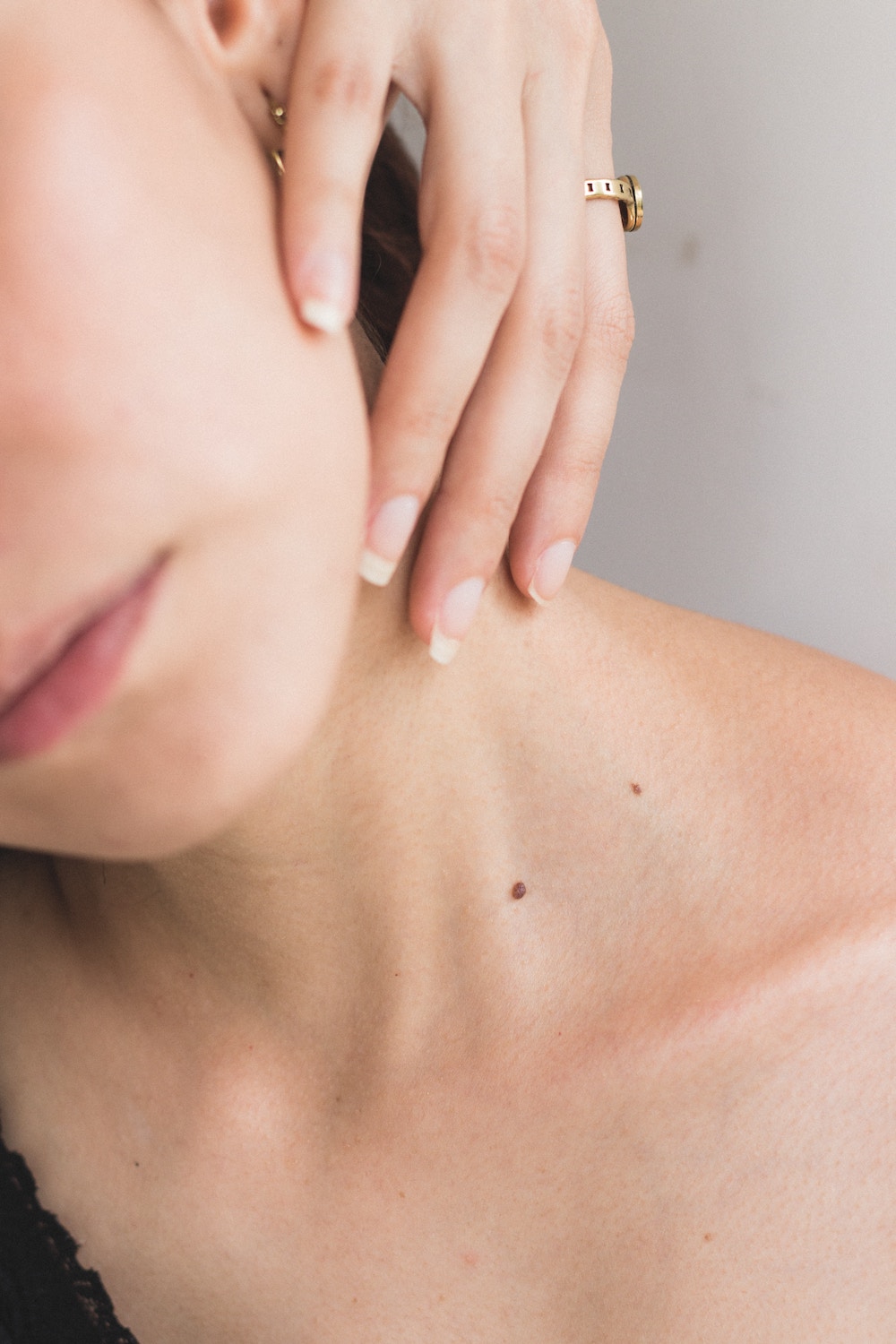Does stress really cause skin problems like acne, rashes, and dry skin?
Although it’s often accepted that stress is generally bad for our health and looks, new philosophies and recent studies suggest that stress negatively impacts our health only when we believe that it will. In other words, if we believe that stress can be beneficial, then there’s a chance that it actually will be.
While this concept is certainly uplifting, there are times when we endure chronic stress that leaves us little time to actually reflect about how life’s challenges may be making us stronger—or sometimes, we can’t help but stress about stress itself! If this sounds familiar to you (or if you’re a human), you may also be wondering if stress is the culprit behind that stubborn breakout or bothersome rash that just. won’t. die.
According to Anna Zaleska-Janowska, professor of immunology at the University of Lodz, Poland, “The skin and the nervous system are twins; they come from the same part of the embryo during development” (qtd. in Porter). Their link is obvious when you recall a time when you were embarrassed. Where did it show? That burning blush on your cheeks!
Because skin is responsible, in part, for certain immune responses, it’s no surprise that skin visibly responds to stress (especially chronic emotional and/or physical stress). British dermatologist Tamara Griffiths explains that stress alone isn’t the cause of your breakout, or rash, or itchy, dry skin. You must already have a susceptibility to these conditions. Stress simply exacerbates them because stress compromises the skin barrier, making it (and you!) more vulnerable to bacteria, allergen, and the elements.
If you’ve ever been sleep-deprived or have felt crunched by a looming deadline at work, you may have noticed that your complexion is up to the worst of its bad behavior—but chances are, it’s bad behavior that you recognize. If I’ve been under the weather (a physical stressor), I’m far more susceptible to hormonal breakouts. It may seem crazy—what does a cold have to do with hormonal breakouts?—but if my immune system is compromised, then body may be less efficient at detoxing excess hormones, leaving my skin more vulnerable. (Not to mention, stress can throw off delicate hormonal balance.)
In fact, elevated levels of cortisol can increase skin’s oil production and thereby lead to more breakouts. On the flip side, stress may also cause skin to become drier. Again, we can thank cortisol, which can decrease skin’s natural production of hyaluronic acid, which, in the right amount, keeps skins hydrated. If that weren’t bad enough, stress can reduce skin’s lipid lamellae, skin’s barrier of fatty cells. When the lipid lamellae is compromised, water can escape from skin, making it more vulnerable to allergens and bacteria–as well as uncomfortable dryness.
But don’t fret! There are things to can to help protect your skin from the effects of stress:
Pop a daily probiotic. Taking a daily probiotic will not only boost digestion but also improve the ratio of good to bad bacteria in your gut. Probiotics improve the gastrointestinal tract’s immune response to antigens. Supporting your healthy gut flora is especially important if you feel your immune system has been compromised by some variety of stress. Like your digestive system, your skin also needs healthy bacteria to thrive, which is why using an anti-bacterial wash may actually do more harm than good because it blindly kills both good and bad bacteria. In addition to taking a probiotic supplement (and/or eating probiotic-rich foods, like raw kimchi), use a gentle face soap—or better yet, one with probiotics!
SPF it up! I won’t belabor this one because I’m sure I’m preaching to the converted. Simply put, use daily SPF 30 to protect your skin from sun damage, which is a form of physical stress. Sun damage generates free radicals and unwelcome inflammation that damages cells, prematurely ages skins, and compromises those important skin lipids we discussed above that keep skin supple.
Get acquainted with your antioxidants. Topical niacinamide, a derivative of Vitamin B3, can increase skin’s antioxidant capability. More antioxidants = decreased likelihood of signs of stress-induced inflammation. Good ol’ vitamin E can help absorb sun’s rays (so your skin doesn’t have to) as well as limit inflammation. Of course, you don’t want to stop at your products! Nothing can benefit your skin quite like a diet rich in colorful plant foods, which undoubtedly packs a gamut of antioxidants.
Sweat it out. In addition to helping reduce stress, exercise is an incredible beauty-booster because it sends your body into repair mode. When you exercise frequently, your body is likely to be in a continual cycle of rejuvenation, which can speed wound healing, even if that wound, like acne, is caused by stress.
How do you protect your skin from the effects of stress?
Also see: 6 Ways to Support Your Liver + Why You Should Care
Get more like this–sign up for our newsletter for exclusive inspirational content!
Photo: Jairo Alzate via Unsplash





